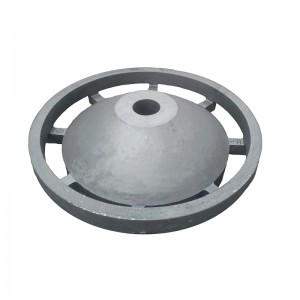- Afrikaans
- Albanian
- Amharic
- Arabic
- Armenian
- Azerbaijani
- Basque
- Belarusian
- Bengali
- Bosnian
- Bulgarian
- Catalan
- Cebuano
- China
- China (Taiwan)
- Corsican
- Croatian
- Czech
- Danish
- Dutch
- English
- Esperanto
- Estonian
- Finnish
- French
- Frisian
- Galician
- Georgian
- German
- Greek
- Gujarati
- Haitian Creole
- hausa
- hawaiian
- Hebrew
- Hindi
- Miao
- Hungarian
- Icelandic
- igbo
- Indonesian
- irish
- Italian
- Japanese
- Javanese
- Kannada
- kazakh
- Khmer
- Rwandese
- Korean
- Kurdish
- Kyrgyz
- Lao
- Latin
- Latvian
- Lithuanian
- Luxembourgish
- Macedonian
- Malgashi
- Malay
- Malayalam
- Maltese
- Maori
- Marathi
- Mongolian
- Myanmar
- Nepali
- Norwegian
- Norwegian
- Occitan
- Pashto
- Persian
- Polish
- Portuguese
- Punjabi
- Romanian
- Russian
- Samoan
- Scottish Gaelic
- Serbian
- Sesotho
- Shona
- Sindhi
- Sinhala
- Slovak
- Slovenian
- Somali
- Spanish
- Sundanese
- Swahili
- Swedish
- Tagalog
- Tajik
- Tamil
- Tatar
- Telugu
- Thai
- Turkish
- Turkmen
- Ukrainian
- Urdu
- Uighur
- Uzbek
- Vietnamese
- Welsh
- Bantu
- Yiddish
- Yoruba
- Zulu
Jul . 27, 2024 21:16 Back to list
Exploring Tailored Investment Opportunities in Advanced Machining Techniques and Technologies for Enhanced Efficiency
Custom Investment with Machining Enhancing Precision and Efficiency
In the modern era of manufacturing, the demand for precision-engineered components has never been higher. Industries ranging from aerospace to medical devices increasingly require components that not only meet stringent tolerances but also fit unique specifications. This is where the concept of custom investment with machining plays a pivotal role.
Custom investment casting is a process that allows for the creation of intricate metal parts through a means that is both cost-effective and efficient. This method involves creating a mold of the desired component using a wax pattern, which is then replaced by a ceramic shell. Once the shell is formed, molten metal is poured in to create the final product. However, to further enhance the precision and capabilities of investment casting, advanced machining techniques are often employed.
Machining, which includes processes like CNC (Computer Numerical Control) milling, turning, and grinding, is utilized to refine cast components to exact specifications. The synergy between custom investment casting and machining yields remarkable results. This combination optimizes both the shape and the functionality of the component, ensuring that it not only fits the design requirements but also performs effectively in its intended application.
One of the primary advantages of custom investment with machining is the ability to produce complex geometries that would be difficult, if not impossible, to achieve through traditional manufacturing methods. The intricacies allowed by investment casting can drastically reduce the need for assembly, thereby minimizing potential points of failure in the final product. Furthermore, the post-casting machining process can enhance the surface finish and dimensional accuracy, elevating the overall quality of the component.
custom investment with machining

Another significant benefit is the material flexibility offered by custom investment. Manufacturers can work with a wide range of metals, including stainless steel, titanium, and nickel-based alloys, creating components that can withstand extreme temperatures and harsh environments. This adaptability is crucial for industries such as aerospace, where weight and materials play critical roles in performance and safety.
Moreover, the integration of machining with investment casting contributes to a more sustainable manufacturing process. By reducing waste through efficient design and minimizing the scrap generated during machining operations, companies can enhance their environmental footprint. Custom investment casting, combined with precise machining, allows for a more thoughtful approach to resource utilization, aligning with modern sustainable business practices.
In terms of operational efficiency, the combination of these two processes can significantly shorten lead times. Once a design is finalized, both the investment casting and machining processes can proceed in parallel, effectively slashing the time it takes to bring a product to market. This agility can be a major competitive advantage in industries where time-to-market is a critical factor.
As technological advancements continue to evolve, the future of custom investment with machining looks promising. Innovations such as additive manufacturing and improved materials science are likely to enhance the capabilities of these traditional processes. The integration of smart technologies and automation will further streamline operations, making it possible to produce even more complex and high-performance components with greater efficiency.
In conclusion, custom investment with machining stands at the forefront of modern manufacturing, offering a unique solution to the challenges of precision and customization in component production. By leveraging the strengths of both processes, manufacturers can deliver superior quality parts that meet the demanding standards of today’s industries, all while fostering sustainability and operational efficiency. As the landscape of manufacturing continues to evolve, this approach will undoubtedly play a key role in shaping the future of production.
-
8mm Thin-Walled Cast Steel Manhole Cover Pallet Bottom Ring | Durable
NewsAug.04,2025
-
Premium Cast Iron Water Main Pipe: Durable, Corrosion-Resistant
NewsAug.03,2025
-
Durable Cast Iron Water Mains | AI-Optimized Systems
NewsAug.02,2025
-
High-Efficiency Propane Boiler for Baseboard Heat | Save Energy
NewsAug.01,2025
-
Premium Source Suppliers for Various Gray Iron Castings
NewsJul.31,2025
-
Durable Cast Iron Water Main Pipes | Long-Lasting
NewsJul.31,2025


